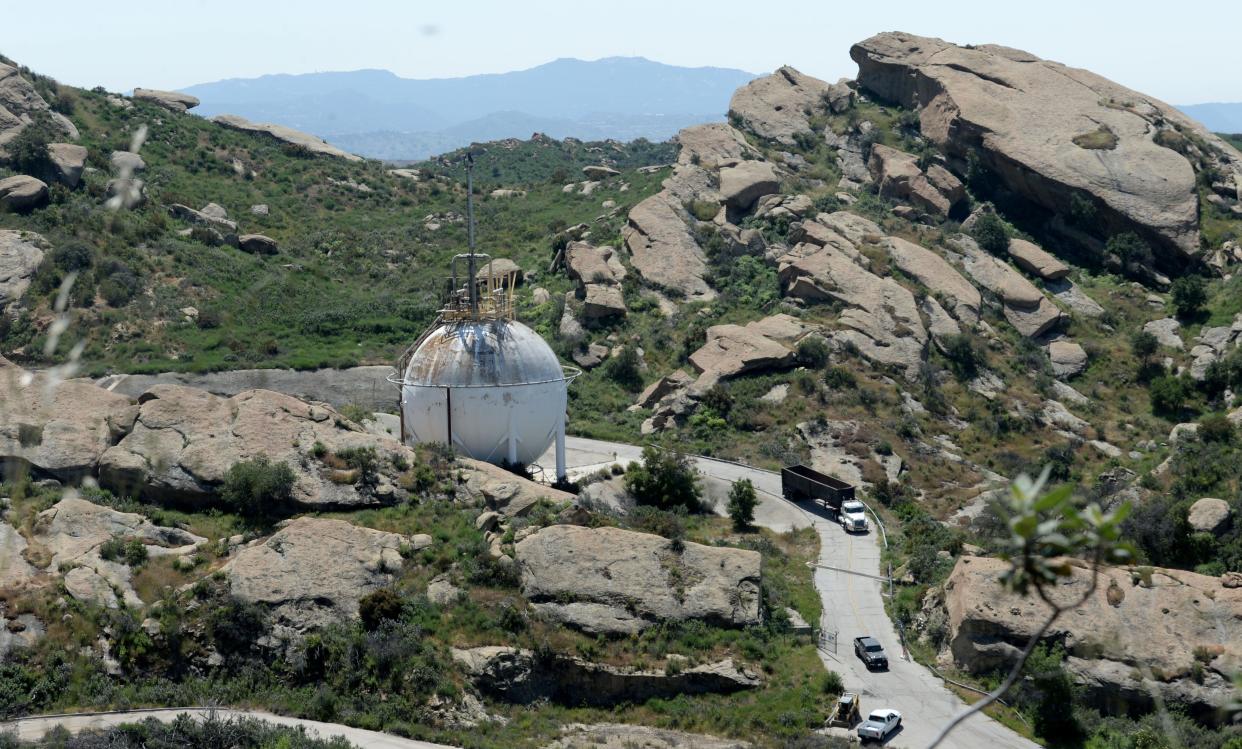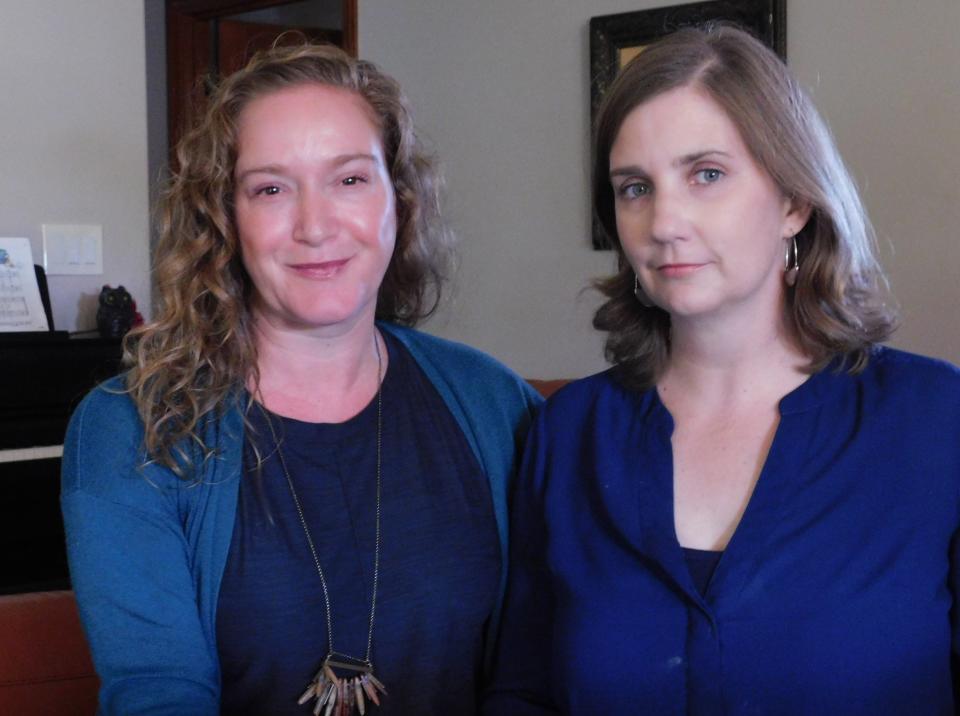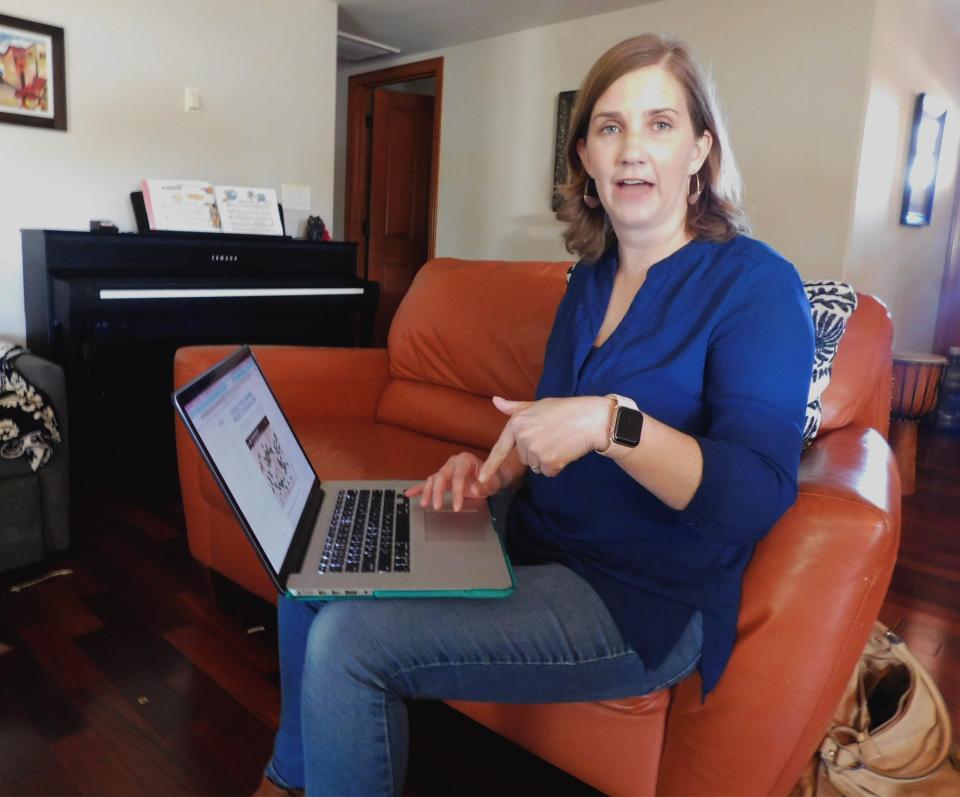Permit calls for more water testing at Santa Susana Field Lab, but critics say more needed

The Los Angeles Regional Water Quality Control Board is weighing whether to scrutinize further stormwater runoff from the Santa Susana Field Lab, where concerns about contaminants have festered over a 1959 partial nuclear meltdown and decades-long rocket testing.
Last month, the board opened a hearing to update the site's permit to require monitoring for 195 contaminants, including 15 new ones, at all discharge points and to set limits for 55 contaminants. The board continued the hearing to Oct. 19.
The permit regulates radioactive metals such as uranium and radium and heavy metals, including lead and mercury. The 15 proposed additional contaminants include substances like aluminum and arsenic. In addition to increased monitoring at the site, the proposed, or draft, permit calls for monitoring of 351 total contaminants identified by state regulators at two discharge points.
Aircraft giant Boeing is responsible for runoff from the Simi Hills site, which includes company-owned land, land that Boeing leases to the U.S. Department of Energy and U.S.-owned land that is administered by NASA. Boeing is currently operating under a 2015 water discharge permit.
Water board staff said Boeing collects the samples and sends them to an independent laboratory for analysis, and the lab shares its findings with the water board. If Boeing violates the limit for a contaminant, the minimum fine is $3,000, according to the California Water Code.

A group called Parents Against Santa Susana Field Lab questions whether the updated five-year permit goes far enough in regulating toxic substances from the 2,850-acre site of the former Rocketdyne/Atomics International rocket engine test and nuclear facility. Boeing acquired the site in 1996.
Representatives from the parents group voiced their concerns at the water board's meeting Sept. 28 in Ventura.
The state Department of Toxic Substances Control, which is overseeing cleanup of the overall site, identified 351 contaminants of potential concern in the soil, sediment, groundwater and surface water, according to the water board staff. The staff said 190 of them were detected in surface water and that many of them don't have a "reasonable potential" to fall short of water quality standards.
Jeni Knack, a leader of Parents Against Santa Susana Field Lab, said her organization would like to see all 351 contaminants tested at all of the site's discharge points for the next five years.
“We have so many people suffering health effects in the communities," she said, referring to cases that include cancer. "I don’t think it’s too big of an ask.”
“I don’t know if the board fully understands how important it is that they heed our requests for strengthening the permit,” Knack added.
The water board staff noted the permit requires Boeing to put in treatment devices to clean the water before it runs off the site.
For its part, Boeing contends it’s doing a lot to protect the water.
“Boeing has performed extensive analyses and undertaken significant efforts to ensure that stormwater runoff leaving the Santa Susana site complies with our Regional Board permit, resulting in over 99% compliance with the permit’s stringent requirements,” spokesman Connor Greenwood said in a statement. “We remain deeply committed to protecting and improving surface water quality at Santa Susana."
Staff at the water board said changes to the permit will increase oversight at the site and that the updated permit is more stringent than the current one. Some of the chemicals are toxic to aquatic life and in many cases, human health, the board staff said.
The updated permit would remove limits for iron, which poses a concern for taste and odor but not health, at two other discharge points and for antimony, nickel, selenium, thallium and dioxin at another point because data showed there wasn’t potential for harm to human health or the environment, according to staff.

In September, the board postponed its vote on the permit, giving opponents hope the board is listening, said Melissa Bumstead, founder of Parents Against Santa Susana Field Lab and a West Hills resident. She blames the site’s contaminants for her daughter Grace contracting a rare form of pediatric leukemia in 2014. Grace has remained cancer-free since a 2017 bone marrow transplant.
The organization maintains a map showing many self-reported cancers in the area close to the site.
Bumstead said that in revising the permit, the water board and its staff are taking some steps in the right direction, "but it's not far enough to protect the public."
The regional water board plans to resume the hearing on the permit at its 9 a.m. Oct. 19 meeting at the its offices at 320 W. Fourth St., Los Angeles. It could vote on the proposed revised permit on that day or delay its decision to another meeting.
Dave Mason covers East County for the Ventura County Star. He can be reached at dave.mason@vcstar.com or 805-437-0232.
This article originally appeared on Ventura County Star: More water testing proposed at Santa Susana Field Lab

